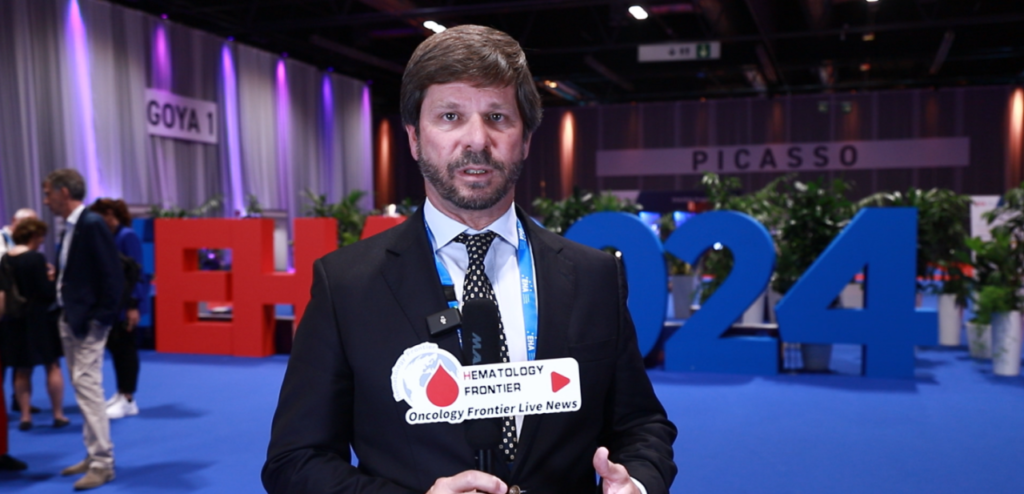
Editor’s Note: The 29th Annual Congress of the European Hematology Association (EHA) was held in Madrid, Spain, from June 13 to 16, 2024. This conference is the largest international event in the field of European hematology, attracting numerous internationally renowned experts and scholars every year to share and discuss innovative ideas, the latest scientific research, and clinical research results in the field of hematology. At this conference, “Oncology Frontier – Hematology Frontier” specially invited Professor Antonio Almeida, the Chairman of the EHA Conference and the founding dean of the Hospital da Luz and Católica Medical School in Lisbon, Portugal, Lisbon, Portugal, to discuss the main highlights and important progress of the conference, covering a range of topics including breakthrough research, international cooperation, and the future challenges in the field of hematology.
Oncology Frontier – Hematology Frontier: As the chairman of this conference, could you introduce the overall arrangement of the conference? What important topics are being discussed, and what considerations influenced the choices of these topics?
Antonio Almeida: This year’s conference is record-breaking, with over 3,300 abstracts submitted and more than 17,000 people attending both virtually and in person. The conference spans the entirety of hematology and was curated by Professor Brian Huntley and the program committee, who selected the experts in the field to present on a wide range of topics. A significant contribution comes from all the members and contributors who submitted their work, resulting in groundbreaking results in clinical trials and new data presented at the Congress.
Oncology Frontier – Hematology Frontier: You participated in and hosted multiple sections such as the EHA-ASH symposium, EHA-EBMT symposium, global symposium, and the presidential section. Could you talk about the highlights of these sections, especially the significance of organizing multiple joint symposiums to promote the development of global hematology?
Antonio Almeida: It’s particularly important for us to have relationships with our sister societies. The joint symposia usually tackle questions of interest to both societies, such as CAR-T cells in the EBMT joint symposia and hemoglobinopathies in the ASH joint symposia. These collaborations allow us to bond closer scientific ties and foster closer collaborations. They are very important, and we will continue to organize them, including with the Chinese National Society.
Oncology Frontier – Hematology Frontier: In recent years, more and more Chinese scholars have come to EHA sites to share their research findings. This year, 24 studies were selected for oral presentations, and hundreds of studies were selected for display in wall posters. How do you view the performance of Chinese scholars at EHA, and what are your expectations for the development of the field of hematology in China?
Antonio Almeida: Chinese scientific hematology has made a huge contribution to science worldwide, not just at this Congress. There has been enormous scientific production and great results, with Chinese scholars always being very innovative in bringing new medicines and strategies to the forefront. It is essential that we continue to collaborate and share knowledge for the benefit of all patients in China and around the world.
Oncology Frontier – Hematology Frontier: Despite the vigorous development of the global hematology field driven by new technologies and drugs, it still faces some challenges. What major challenges do you think hematology is currently facing, and what should be the future research direction and strategy?
Antonio Almeida: The biggest challenge we face in hematology, as in all medicine, is the inequality of distribution. There is a lack of equality in the distribution of diagnostic tests, medicines, and therapeutic strategies for all patients. We produce a lot of knowledge, new drugs, and diagnostics, but not everyone in the world has access to these advancements. We need to fight to ensure that access is equal for everyone, so we can continue to develop and benefit all our patients.
Conclusion:
Antonio Almeida’s interview highlights the significant achievements and collaborative efforts showcased at the EHA Conference. His insights underscore the importance of global cooperation in advancing hematology and addressing the field’s challenges. The focus on ensuring equitable access to new diagnostic tools, treatments, and therapies is crucial for the future of hematology. The contributions from international scholars, especially from China, play a vital role in pushing the boundaries of research and clinical practice, promising a better future for patients worldwide.


